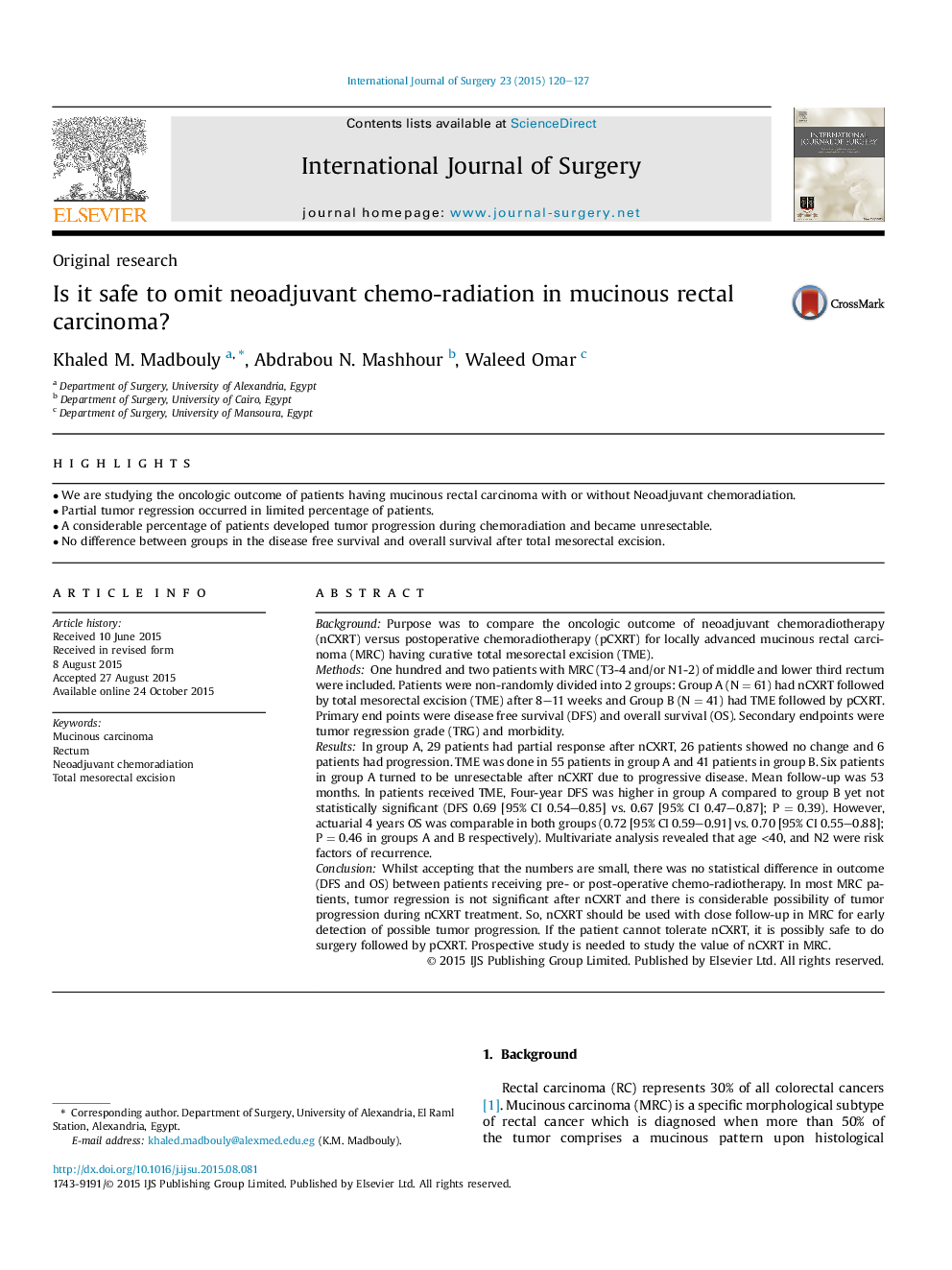| Article ID | Journal | Published Year | Pages | File Type |
|---|---|---|---|---|
| 6251260 | International Journal of Surgery | 2015 | 8 Pages |
â¢We are studying the oncologic outcome of patients having mucinous rectal carcinoma with or without Neoadjuvant chemoradiation.â¢Partial tumor regression occurred in limited percentage of patients.â¢A considerable percentage of patients developed tumor progression during chemoradiation and became unresectable.â¢No difference between groups in the disease free survival and overall survival after total mesorectal excision.
BackgroundPurpose was to compare the oncologic outcome of neoadjuvant chemoradiotherapy (nCXRT) versus postoperative chemoradiotherapy (pCXRT) for locally advanced mucinous rectal carcinoma (MRC) having curative total mesorectal excision (TME).MethodsOne hundred and two patients with MRC (T3-4 and/or N1-2) of middle and lower third rectum were included. Patients were non-randomly divided into 2 groups: Group A (NÂ =Â 61) had nCXRT followed by total mesorectal excision (TME) after 8-11 weeks and Group B (NÂ =Â 41) had TME followed by pCXRT. Primary end points were disease free survival (DFS) and overall survival (OS). Secondary endpoints were tumor regression grade (TRG) and morbidity.ResultsIn group A, 29 patients had partial response after nCXRT, 26 patients showed no change and 6 patients had progression. TME was done in 55 patients in group A and 41 patients in group B. Six patients in group A turned to be unresectable after nCXRT due to progressive disease. Mean follow-up was 53 months. In patients received TME, Four-year DFS was higher in group A compared to group B yet not statistically significant (DFS 0.69 [95% CI 0.54-0.85] vs. 0.67 [95% CI 0.47-0.87]; PÂ =Â 0.39). However, actuarial 4 years OS was comparable in both groups (0.72 [95% CI 0.59-0.91] vs. 0.70 [95% CI 0.55-0.88]; PÂ =Â 0.46 in groups A and B respectively). Multivariate analysis revealed that age <40, and N2 were risk factors of recurrence.ConclusionWhilst accepting that the numbers are small, there was no statistical difference in outcome (DFS and OS) between patients receiving pre- or post-operative chemo-radiotherapy. In most MRC patients, tumor regression is not significant after nCXRT and there is considerable possibility of tumor progression during nCXRT treatment. So, nCXRT should be used with close follow-up in MRC for early detection of possible tumor progression. If the patient cannot tolerate nCXRT, it is possibly safe to do surgery followed by pCXRT. Prospective study is needed to study the value of nCXRT in MRC.
